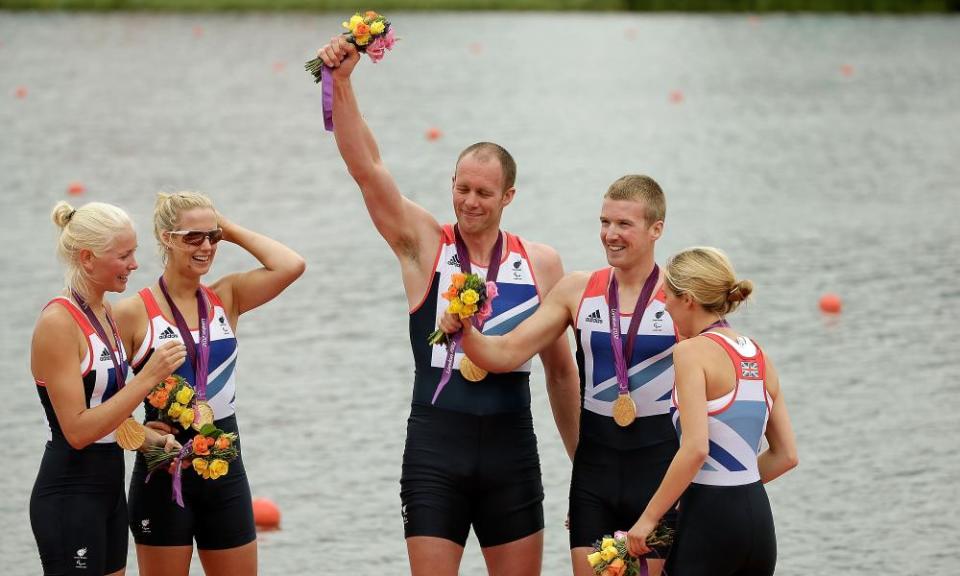The radiotherapy department can be hell, but it’s also a place you feel lucky

Tomorrow will be first day since 4 March that David Smith hasn’t had to have a powerful dose of radiation blasted at the tumour on his spine. For the past six and half weeks, he has made his way to University College hospital in London, taken the lift down to the radiotherapy department in the basement and waited his turn. He then stripped to the waist and donned a tight-fitting mask to cover his head and neck. This mask, with his head in it, was pinned to the slab he lay on as the machine went to work on his blasted tumour.
David is an athlete. Two years after the spinal tumour first showed itself, heralding a series of gruelling operations, he took a rowing gold at the 2012 Paralympics. He then switched to track cycling and set about qualifying for Rio. But then the tumour grew again – so it was back in for surgery that, this time, left him all but paralysed down his left side. Now, after two more operations at the turn of the year, he has been getting just about as much radiation as he can take.
Related: I'm an oncologist who got breast cancer. This is what I learned
Ahead of the radiotherapy, the medics warned him that the side-effects would be punishing (they have been), but he was also told that the real stress would be in seeing his fellow cancer patients, young and old, day in, day out, come and go. Some would die soon; others wouldn’t. There would be no way of him knowing who would be who. “They were right,” David said bleakly after his first treatment. “You all wait in this corridor. There are people crying; there are people being sick; there are kids in there. It’s brutal.”
We called it the corridor of hell. But that name didn’t stick because, although there are many horrors in that corridor, it has turned out to be a very special place. I’ve tried to go along with David whenever I can. At first I dreaded it, but it soon came to feel like a privilege. Camaraderie isn’t quite the right word; it’s more than that.

David Smith (centre) and the rest of the British mixed coxed four rowing team in 2012.Photograph: Matthew Lloyd/Getty Images
At first, most eyes are to the floor. Those with companions tend to be lost in each other. Then, as days go by, there are flashes of recognition and the odd smile. Soon there are conversations; war stories are swapped. Bald numbers on life expectancy are exchanged in the most matter-of-fact of tones. There’s a bit of laughter, not a few tears, and plenty of eye rolling, which could be in reference to the waiting time, on occasion, or quite possibly the closeness of death. The administrators and radiologists soon feel like friends. And the engineer responsible for keeping the zapping machines zapping buzzes around radiating – pardon the pun – frightening energy and spirit.
Every so often a trolley bearing a patient, apparently unconscious, is wheeled past and the conversation quietens or pauses. As David once said to me, when he was bed-ridden at Stoke Mandeville hospital: “I try to give thanks for what I’ve got, and in a place like this, it’s very easy to feel like the lucky one.” We often reflected on that, in this corridor of something that very definitely wasn’t hell, while the traffic on the Euston Road, like all our worldly troubles, teemed away two floors up.

 Yahoo News
Yahoo News 